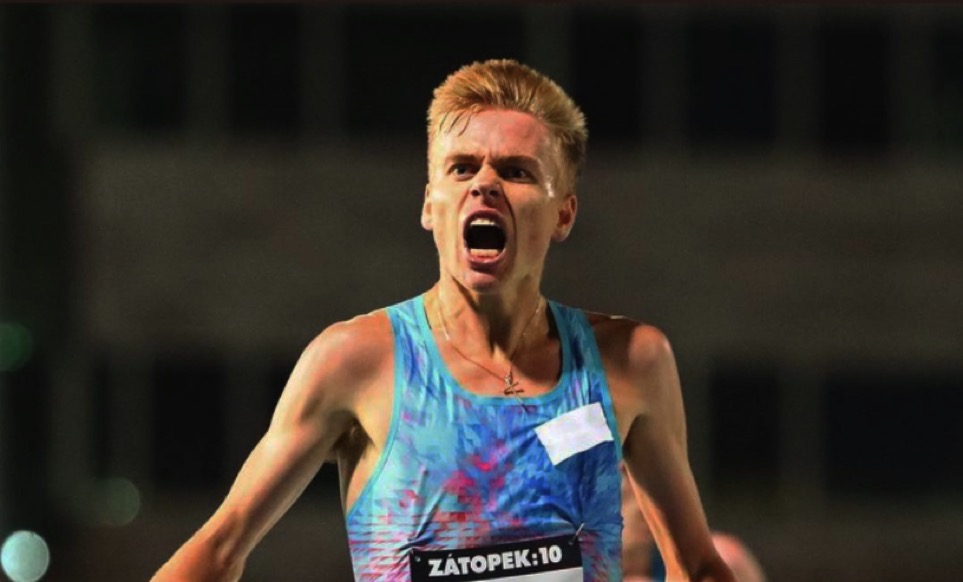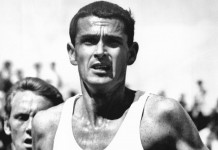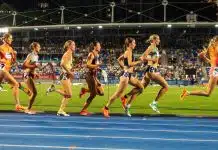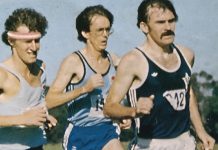A column by Len Johnson – Runner’s Tribe
Only one event has had its Gold Coast 2018 trial and already selectors and athletes are in a quandary.
Actually, make that two quandaries if we count the news that Australia may be restricted to a quota of 73 athletes in the able-bodied section of its team for next April.
Other than Zatopek:10 winners Stewart McSweyn and Celia Sullohern, and second-placed male Patrick Tiernan, everyone else is in a bit of a muddle when it comes to who will get to run the 10,000 come next April’s Games time.
Australia has set both A and B-standards for Commonwealth selection. Under the nomination criteria (‘nomination’, because the team is technically under Commonwealth Games Australia’s aegis, not the individual sport’s), the winner of the trial is guaranteed selection provided they have achieved at least the B during the qualifying window.

McSweyn has that standard, achieved, ironically enough, in finishing second in last year’s Zatopek to Tiernan, the man he defeated to win this year’s race. Sullohern achieved it in the Zatopek in defeating Jess Trengove, whose priority is the marathon, and Eloise Wellings, who has an A.
Tiernan and Wellings are also likely to be named. The second-placed athlete in the trial is automatic, too, provided they have an A: that presumably covers Tiernan. I am assured that even if the quota is maintained, modelling shows that all athletes with automatic status will be nominated to the CGA. Wellings has an A, and a distinguished record, so she should be right, too. Still, if you’re not automatic, you’re entitled to be nervous.
This is about the point in the old Laurel and Hardy comedies at which a flustered Ollie (Hardy) vents his exasperation on Stan (Laurel): “Well, here’s another fine mess you’ve gotten me into.”
Quite so. There could be quite a few more fine messes if the quota remains unchanged and almost 100 athletes (Australia named 92 for Glasgow four years ago, but there were no walks: the equivalent number this time would be 98) try to squeeze into a team just three-quarters that size.
All this will play out in coming months, though we are left to wonder why on earth the Commonwealth Games Federation – the IOC, of the Games – would want to restrict the host nation’s team. It’s not as if cities are falling over themselves to bid. Let’s look at the Zatopek races instead.

There’s always a danger reading too much into athletes’ post-race comments, but it seems that Stewart McSweyn checked in for the men’s race with a serious plan in his pocket. Celia Sullohern, on the other hand, had the more nebulous aim of just wanting to see what she could do.
McSweyn had a break-out year in 2017. After laying a solid foundation in the second half of 2016 with victory in the national cross-country and the second place in the Zatopek which gave him that all-important B-standard, he continued on in 2017. After improving to 7:47.67 for 3000 in Turku in June, McSweyn ran a world champs qualifier at 5000 (13;19.98) and a ‘pb’ mile of 3:55.97 in six days in July. In the latter race he out-kicked Tiernan by almost two seconds, another factor which would play into his confidence in the latter stages of the Zatopek race.
Unfortunately, three Australians were faster at the 5000, but McSweyn was offered a place in the steeple at the world champs on the roll-down. He did not get through the heats, but no doubt the experience was valuable.
The first half of the Zatopek went by in a leisurely 14:39.78, a touch over world record marathon pace! McSweyn was always prominent and remained in the lead pack as marathoner Brad Milsoevic pushed the pace down a touch. When Tiernan made his move along the back-straight in the 21st lap, it looked as if the race had swung strongly his way. Two potential winners in Dave McNeill and Brett Robinson immediately fell back.
McSweyn could not be dislodged, however, remaining at Tiernan’s shoulder through successive 62-second laps. Perhaps sensing the race was coming down to a final-lap battle, Tiernan let the pace slow to 64 seconds for the penultimate lap. Coming into the last straight, it sill looked possible he would make it two wins in a row, but McSweyn dashed past for a memorable win.
McSweyn said later he had been hoping for a slow pace – he got that – as Tiernan had a big edge in endurance, but he was confident he could win the race if it came down to a kick, given his result in the mile referred to above.
It was much the same scenario as in the women’s race an hour earlier. Trengove took up the pace after a first 5000 run in a tick or two under 16:40. From an 80-second lap tempo, she pushed it down to 78, then 76-second pace. Coming up to 7000, Wellings, Emily Brichacek and Sullohern were the only three able to withstand the pace injection.
Trengove surged again, this time opening a gap to Brichacek. Looking ominously comfortable, Sullohern immediately closed down the gap and it had become a race in three. Wellings was surprisingly next to go, allowing a gap to open when Sullohern briefly went to the front with three laps to run. Five metres became 10 and then the three-time winner was off.

Regaining the lead, Trengove kept pushing the pace, But she could not dislodge Sullohern, who got by in the final lap to win, 32:21.22 to 32:35.06.
A former winner of the Lisa Ondieki U20 3000, Sullohern joined Susie Power and Bridey Delaney as the only women to have won both the junior and senior races at the Zatopek meeting.
More importantly, she also gave herself the option of running her next 10,000 on the Gold Coast next April. Like Trengove, she is also a contender for marathon selection after her break-through win in Melbourne in Ocotber.
End
ABOUT THE AUTHOR
Len Johnson has been the Melbourne Age athletics writer for over 20 years, covering six Olympics, eleven world championships and six Commonwealth Games. He is also a former national-class distance runner. For over a decade Len has bee Runner’s Tribe’s lead columnist. Len also writes for IAAF. He has recently been named an Athletics Australia Lifetime Member. He is also the author of ‘The Landy Era’.

















Great work Stewy. Does anyone know why they covered up the Nike logo? Was it a sponsorship issue?